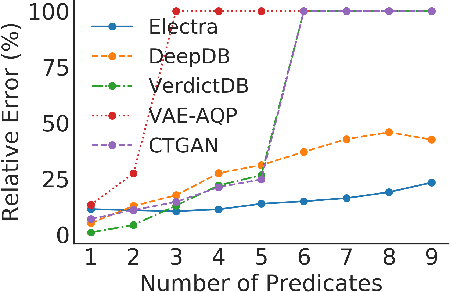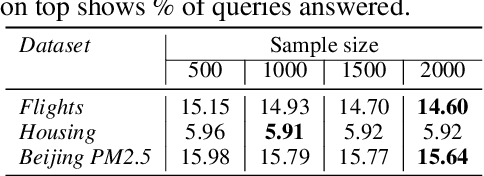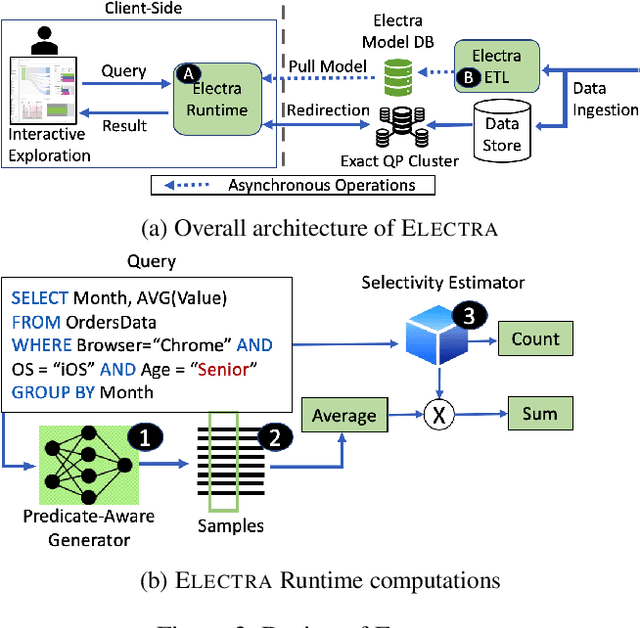Electra: Conditional Generative Model based Predicate-Aware Query Approximation
Paper and Code
Jan 28, 2022



The goal of Approximate Query Processing (AQP) is to provide very fast but "accurate enough" results for costly aggregate queries thereby improving user experience in interactive exploration of large datasets. Recently proposed Machine-Learning based AQP techniques can provide very low latency as query execution only involves model inference as compared to traditional query processing on database clusters. However, with increase in the number of filtering predicates(WHERE clauses), the approximation error significantly increases for these methods. Analysts often use queries with a large number of predicates for insights discovery. Thus, maintaining low approximation error is important to prevent analysts from drawing misleading conclusions. In this paper, we propose ELECTRA, a predicate-aware AQP system that can answer analytics-style queries with a large number of predicates with much smaller approximation errors. ELECTRA uses a conditional generative model that learns the conditional distribution of the data and at runtime generates a small (~1000 rows) but representative sample, on which the query is executed to compute the approximate result. Our evaluations with four different baselines on three real-world datasets show that ELECTRA provides lower AQP error for large number of predicates compared to baselines.
 Add to Chrome
Add to Chrome Add to Firefox
Add to Firefox Add to Edge
Add to Edge